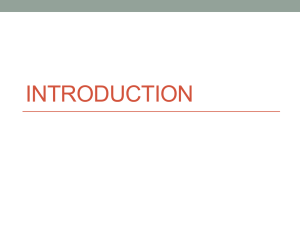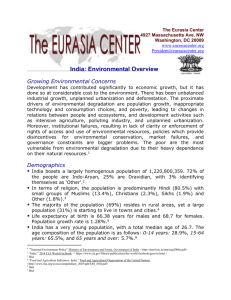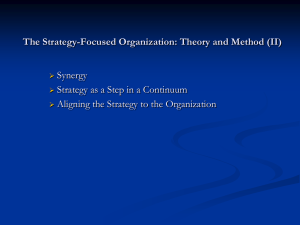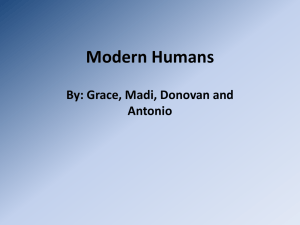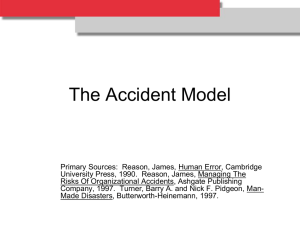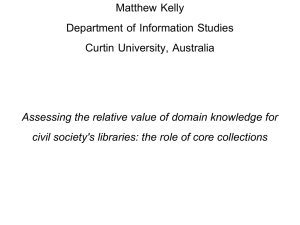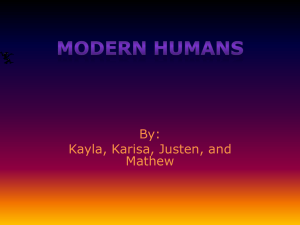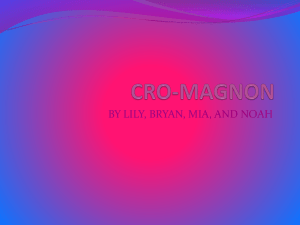paper
advertisement
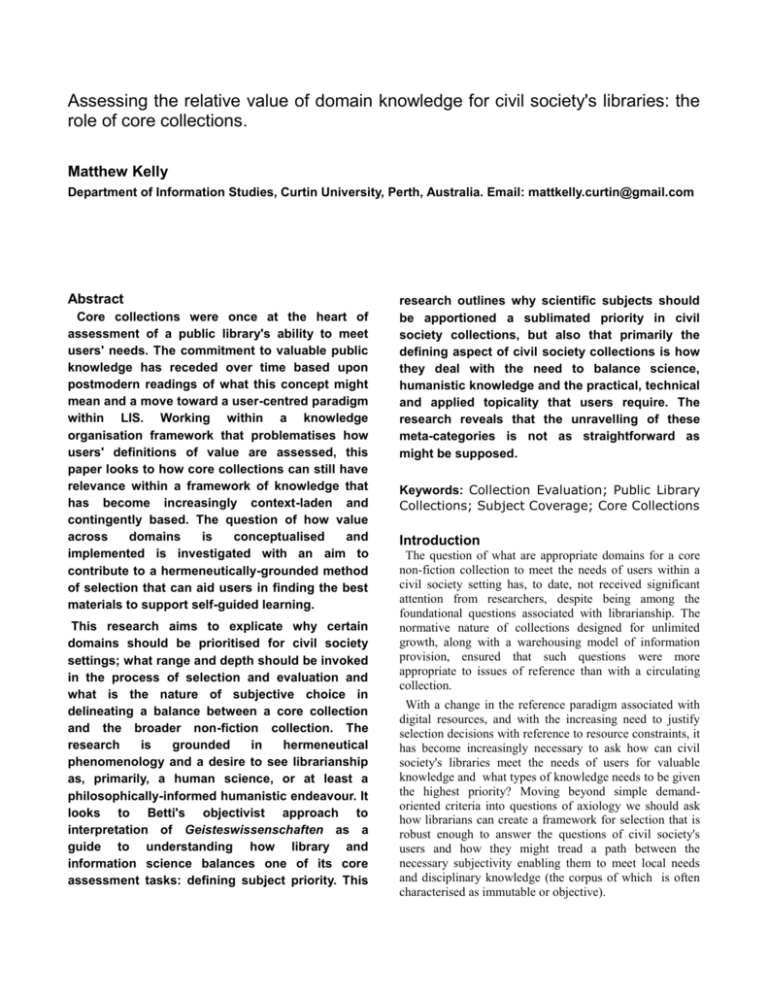
Assessing the relative value of domain knowledge for civil society's libraries: the role of core collections. Matthew Kelly Department of Information Studies, Curtin University, Perth, Australia. Email: mattkelly.curtin@gmail.com Abstract Core collections were once at the heart of assessment of a public library's ability to meet users' needs. The commitment to valuable public knowledge has receded over time based upon postmodern readings of what this concept might mean and a move toward a user-centred paradigm within LIS. Working within a knowledge organisation framework that problematises how users' definitions of value are assessed, this paper looks to how core collections can still have relevance within a framework of knowledge that has become increasingly context-laden and contingently based. The question of how value across domains is conceptualised and implemented is investigated with an aim to contribute to a hermeneutically-grounded method of selection that can aid users in finding the best materials to support self-guided learning. This research aims to explicate why certain domains should be prioritised for civil society settings; what range and depth should be invoked in the process of selection and evaluation and what is the nature of subjective choice in delineating a balance between a core collection and the broader non-fiction collection. The research is grounded in hermeneutical phenomenology and a desire to see librarianship as, primarily, a human science, or at least a philosophically-informed humanistic endeavour. It looks to Betti's objectivist approach to interpretation of Geisteswissenschaften as a guide to understanding how library and information science balances one of its core assessment tasks: defining subject priority. This research outlines why scientific subjects should be apportioned a sublimated priority in civil society collections, but also that primarily the defining aspect of civil society collections is how they deal with the need to balance science, humanistic knowledge and the practical, technical and applied topicality that users require. The research reveals that the unravelling of these meta-categories is not as straightforward as might be supposed. Keywords: Collection Evaluation; Public Library Collections; Subject Coverage; Core Collections Introduction The question of what are appropriate domains for a core non-fiction collection to meet the needs of users within a civil society setting has, to date, not received significant attention from researchers, despite being among the foundational questions associated with librarianship. The normative nature of collections designed for unlimited growth, along with a warehousing model of information provision, ensured that such questions were more appropriate to issues of reference than with a circulating collection. With a change in the reference paradigm associated with digital resources, and with the increasing need to justify selection decisions with reference to resource constraints, it has become increasingly necessary to ask how can civil society's libraries meet the needs of users for valuable knowledge and what types of knowledge needs to be given the highest priority? Moving beyond simple demandoriented criteria into questions of axiology we should ask how librarians can create a framework for selection that is robust enough to answer the questions of civil society's users and how they might tread a path between the necessary subjectivity enabling them to meet local needs and disciplinary knowledge (the corpus of which is often characterised as immutable or objective). The hermeneutic grounding of the problem Gadamer explains how in Aristotle's formulation of “prohairesis,” the “formation of right convictions and...making right decisions” a distinction emerges between the scientific kind–“the mode of being known that depends on having proofs” and a moral version that is answerability or a type of respectful listening that is “participation in the superiority of a knowledge that is recognised to be authoritative...(and) allowing one's own convictions to be codetermined by another” (1999, p. 153). Gadamer posits Aristotle as a salve to a prevailing world picture influenced by neo-Kantianism and its “epistemological methodologism” where questions of “what rationality really is, as it operates in the clarity of the practical life of humanity” (151) and in its expression as distinguished and fundamental knowledge, as “the theoretical rationality of science” (152) prevail. The balm, according to Gadamer, is Aristotle's “other kind of knowledge” that “life itself is concerned with,” the dianoetic virtues: techne, episteme, phronesis, nous and sophia; all “modes of knowing-being or securing the true.” Where this interpolates with collection theory is in how this kind of knowledge is proactive. Unlike “forms of knowing that are mere acceptance or viewpoint or opinion [and hence] cannot really be called knowing, because they admit error” this virtuous knowledge is sublime. Strictly speaking, where collection development fits the acquiescence criteria, it can be considered, at best, undeveloped. Gadamer highlights these dianoetic forms of knowing as reliable in contradistinction to mistaken or concealed knowledge. Gadamer outlines how hermeneutic insight helps to enable differentiation of philosophical text and literary artwork so as to avoid doxographic dogmatism. He does this with reference to Plato's “parts of the soul,” a doctrine that demonstrates “the unity of the soul in the plurality of its members and likewise the unity of the polis, where wellbeing of the soul as well as that of the city depends on the harmony of voices” (ibid 154). Aristotle, according to Gadamer, creates an image of the human soul that “exists as one and presents itself as the one which it is in terms of its various possibilities” (ibid). These are interconnected, phronesis (practical wisdom) with ethos (character), as “aspects of the same basic constitution of humanity” (ibid 155). With our (relatively) free choice we are left differentiating ethical and dianoetic virtues, and as Aristotle presaged, differentiating “knowledge involved in the phronesis that guides practice from the other forms of knowing where...theoretical knowledge or cognitively dominated production and manual skill are involved” (ibid). In his search for interpretative guidelines, or canons, that reveal “the hermeneutic autonomy of the object” (Betti, 2 1980, 58) Betti looks to the notion that meaning (or sense) “should not be inferred but extracted” (Berzano 2012,80). Meaning-full forms have to be regarded as autonomous, and have to be understood in accordance with their own logic of development, their intended connections, and their necessity, coherence and conclusiveness; they should be judged in relation to the standards immanent in the original intention. (Betti, ibid) The “coherence of meaning (principle of totality)” (ibid, p. 59), allows for clarity to be “achieved by reference either to the unity arising out of the ensemble of individual parts or to the meaning which each part acquires in respect of the whole”. This leads to an interdependence of signification and coherence, which in a comprehensive totality can, in an objective reference, be conceived of as a cultural system which the work to be interpreted belongs to, inasmuch as it forms a link in the chain of existing continuities of meaning between works with a related meaning-content and expressive impulse. (ibid, p. 60) Bleicher (1980, p. 27) highlights how Betti considers the problematic relationship between perceiving mind and object through a process of “interpretation of meaning-full forms” (ibid, p. 28) to get to the difficult reality of objectivity and thereby “understanding in general” (ibid). Within the setting of LIS there is a need to adjust the hermeneutic process that closely links author and interpreter according to Benediktsson (1989, p. 212), who also points to how the “objective of an interpretative process is to arrive at contextual information, as opposed to atomized information” and the neglect of contextuality, which is a significant error. The meaning-inferring activity involved in this process is somewhat different to interpretation per se, it requires according to Betti, working within a framework of respect for the values of other people and doing justice to “the living community of minds” (ibid, p .71). It is eschatological but is not, for Betti, “beyond historical time”. According to this view, “history can never provide the framework around which eschatological events can crystallize; these events occur, in fact, within existence, which cannot be determined by reference to history alone” (ibid). Perrin's (1974) pared-back hermeneutic method, looks to Dilthey and Bultmann and works within the notion that "die Kunstlehre des Verstehens schriftlich fixierter Lebensiusserungen (the art of understanding expressions of life fixed in writing)” is really a search for a general understanding of life; what remains may be a sign of finality or a symbol of experience, however so, the limits and means by which intensionality are exhausted beyond historical hermeneutic understanding lead to interpreting this as “a conscious concern for relevance to and impact upon the interpreter and the interpreter's life” (ibid, p.5). The non-historical meaning-inference, that may express itself as a religious–or some other “continuing and specific encounter” (ibid, p. 72)–is not, and here Betti looks to Bultmann's consideration of this, inconsistent with “the quest for knowledge in the study of history”. What might result is a situation in which “knowledge of history and self-knowledge would correspond to one another”. They do this apparently through recognition of the nexus between human historicality and “responsibility towards the future” (ibid). Betti asks us to toy with the idea that historicality is more than just the human interpretative capacity, it is “opportunity” and it links with self-knowledge and awareness of responsibility as qualities that enable the inference of meaning to take place. Betti (ibid, p. 73) cites Bultmann: In this kind of understanding the traditional opposition between the understanding subject and the object understood vanishes. Only as a participant and as...an historical Being can the historian understand history. In such understanding of history, man understands himself. Human nature cannot be grasped through introspection; instead, what man is can only be seen in history which reveals the possibilities of human existence through the wealth of historical creations. (1958, p. 139) Betti is, however, just toying with such ideas to better refute them. They negate objectivity in such a way that shifts meaning to suppose that “the hermeneutical process of historical interpretation” corresponds with “situationally determined meaning-inference” (Betti, ibid). This would, in Betti's view, mistake “a condition for the possibility with the object of that process” and lead to the removal of the “canon of the hermeneutical autonomy of the object...from the work of the historian”. The self-satisficing nature of such an approach, which tempts through exegetical use of texts which only confirm already held opinions, needs to be balanced by a radical disclosure that allows that there may be, that there is, something within the text that “we could not know by ourselves and which exists independently of our meaning-inference” (ibid). The subjectivist position confounds interpretation and meaning-inference, and while eschatologically there are similarities, its “putting into doubt the objectivity of the result of interpretative procedures in all the human sciences” requires a demarcation of where objectivity might lie and how we “evidence...the epistemological conditions of its possibility” (ibid). Placing the knowledge organisation task within a civil society context Public (or civil society) libraries have changed in many parts of the world to such an extent that the mission to provide mutual support to afford expensive reading materials is much diminished. What remains is a cultural relevance that is characterised by a strongly civic and educational veneer. Working within this context, it is suggested that it is these characteristics which best represent the role that our public libraries now play. The only private libraries of consequence that remain are academic libraries and the collections in these are of little relevance, and of little temptation, to the vast majority of library users. It is for this reason that conceptualising civil society libraries, not for their public character nor for their openness to all, these are well-accepted facts, but for their civic and educational purpose creates a foundation to build collections that better fit the changed milieu. It is contended that the perceived need to meet demands for topicality, based upon either the model of the right of public access or the perception that all domain knowledge has an equal standing, is in need of revision. If we place the civil society setting of the public library within a combined context of meanings (Roginsky & Shortall, 2009) which ranges from informal networks, through the so-called “third sphere” of non-state and nonmarket activity and to a notion of a self-regulating universe, we are better placed to unravel the more legitimate questions that we are called upon to answer. While investigation of the civil society context of the public library have been made by scholars such as Kranich (2003), these do not look to elicit what kinds of domain knowledge fits a sector that has interests outside of those of the state, the academy and the market but is reflective of broadly democratic and shared moral values? This conceptual research aims to provide preliminary findings to the questions of what among the numerous topical possibilities that might be represented in a civil society library, is indispensable, and why? Scientific knowledge in civil society libraries Both Saračević (1975) and Hjørland and Albrechtsen (1995) point to how the subject view of relevance plays a significant part in how we structure the lifeworld, in the communication of knowledge and in scientific method. Within the context of the civil society library scientific knowledge straddles a chasm between complexity and necessity. Complexity prohibits detailed treatment of any particular subject while, intrinsically for civic and educational purposes, some representation is needed. When looking at how to conceptualise the collection that handles scientific knowledge the recompense offered for an adumbration of the depth of subject coverage is that this domain should always be accorded the first priority in any consideration of a core collection. While it is not necessary to outline in detail the benefits that accrue from scientific methodology and the philosophy of science, it will suffice to point to how scientific knowledge has an important collateral role: “scientific disciplines can be regarded as social devices [facilitating]...the analysis and reduction of raw information to assimilated knowledge” (Garvey and Griffith, 1972, p.123). Contextualising the realm of non-scientific knowledge Creating concepts that fit into an elementary structuring of knowledge is fraught with difficulty. Smiraglia and Van den Heuvel (2013, p. 61) outline how, despite this, the “validation of an elementary theory of knowledge interaction” should be attempted. Shifting focus to interaction, rather than organisation, allows us to see “how the nature and behavior of knowledge unities...formulate an alternative to a universal classificatory order, in order to create (temporary) interfaces that allow for interactions of knowledge” (ibid, p. 373). For the purposes of civil society libraries it is proposed that a more appropriate approach to non-scientific knowledge can be outlined than the current diffuse system that is based on either classificatory or use-based criteria. In line with Smiraglia and Van den Heuvel's direction to seek interaction as a useful guiding principle in how knowledge structures might be better conceived, a format that divides all non-scientific knowledge into either humanitas or techne is explained. Humanitas as a concept allows the capture of a broader range of materials, subject areas and ideas than what we would ordinarily include in the concept of humanities. Tubbs (2014) points to how the concept broadly encompasses a recognition of a desire for self-knowledge– it focuses more on the enculturing of the human being (bildung) and encompasses an applied literary, historical and philosophical inquiry in a way that humanities, with its encyclopaedic Aristotelian/Scholastic tendency is less 4 oriented toward: humanitas might best be seen as a more ontologically-grounded expression of the humanities. Tubbs orients us to the break between the concepts as the separation of philosophy from the broader humanistic canon and how philosophy was able to fit in with the Scholastic pedagogic traditions of the lectura and the disputatio. The result was that “separated from philosophy, the humanities failed to retain their own philosophical unity and gradually fell apart into individual subject specialisms” (ibid, p. 491). Techne is one of Aristotle's dionetic virtues and may be rendered as productive knowledge or art. The concept can be utilised as a means to marshal disparate subject knowledge into a taxonomy that allows semantic ordering to take place with reference to the structure of knowledge (in line with Smiraglia and Van den Heuvel's approach). It can do this in a way that is appropriate to a non-expert user cohort with potentially an unlimited range of topical information needs (as might reasonably be expected of a civil society library setting). Utilising techne, in this sense, is not without precedent. Roochnik (1986) speaks of two kinds of techne as evidenced in Plato. Both productive and theoretical knowledge can be forms of techne. It is outlined in the current research as separate to scientific knowledge and humanitas, and as exemplifying a different modality. That modality is purposive action, and it is from this that we may take the central concern of the original concept and then apply it to a large set of classes of subject knowledge. Within this framework all that is not scientific knowledge, and that is not humanitas, is techne. To use a blunt example, Engineering uses Mathematics and Physics to create the ergon (work) of its technai (crafts), and would not be included in our definition of scientific knowledge. The concept expands upon the notion of applied science and extends to all classes of knowledge that rest upon some measure of value, outside of epistemic claims to truth or measures of civic or moral virtue. The latter should not be narrowly construed as it encompasses, inter alia, a broad range of topicality through history, philosophy and literary exegesis. The concept of virtue acts on our subject topicality in the same way that moral philosophy implies both cognitive and ethical impetus. The issues arising are axiological in nature and contemplate both aesthetic and ethical (normative) considerations of value. Prioritising Humanitas as the core collection for civil society libraries It is argued here that humanitas deserves to be placed at the centre of a civil society collection primarily because it is universal in its applicability to human Being and that it is relevant to the lifeworld of the individual just as it is to the society in which they live. This leads to the claim that as the most universally relevant subject knowledge, the subject knowledge that constitutes humanitas, should be accorded more significant treatment than techne. Within the circulating context of a civil society library this would mean that these materials are retained and replaced with greater certainty than items within the techne class. Similarly, greater semantic justification for their place in the collection would be needed. These works while not necessarily canonical, serve a similar purpose to a canon. While we may think of the works themselves as important, and in some cases they may be, they fit these axiological criteria only in so far as they represent the domain, topicality or subject that they sustain. Wilson explores indirect reference as a somewhat bibliographical or subject-oriented equivalent to these notions and asks whether counting of concepts (in his focus it is identifying the subjects of writing) might equally be extensible into identifying the topicality of collections. While quantitative methods to define subject, or topicality, require the addition of an indirect focus on interpretation to be worthwhile (Wilson, ibid, p. 85), in order to move beyond a new ad hoc that we might resort to grouping–the always already familiar and natural–requires While humanitas is prioritised it must fit within a more catholic definition of materials selection that demands that all domain and topical representation is subsumed within the principle of subject range and depth, such that, the broadest horizon of topicality is of the most value to users. If implemented (and potentially it is already the undefined status quo), this principle would likely result in a collection that sees techne as the largest domain grouping represented. The implications for how humanitas might be treated are in the numbers of works for a subject area (the relevant topical range) and in the depth of treatment–both being provided for ad abundantiam. our ingenuity in finding ways of assembling groups, on our stock of available notions, on our ability to unify a writing [or a collection] by discovering or inventing a concept which all or much of the writing can be taken as exemplifying in one way or another. (ibid) The importance of humanitas subject knowledge, and the axiological nature of the topicality, demands that multiple treatments of similar subjects are integral to assessment of the comprehensiveness of a collection in ways that both scientific knowledge (with its limited comprehensibility to this type of user) and techne (with its limited relevance to any particular user) cannot claim. The somewhat arbitrary line between the Geistesswissenschaften and nonscientifically oriented humanistic knowledge (and the relative ease of linguisticality as the medium of communication) would seem to demand that a precautionary principle to err on the side of complexity is implemented when dealing with humanitas materials selection. Core collections as remedies for bibliographic uncertainty Unifying the approach to subject When our notion of subject is itself problematical, when we debate “aboutness” so that it fits “one perfectly precise description” (Wilson, 1968, p. 71) rather than a multiplicity, and when we are unable to comprehend topicality that extends beyond simplistic precision, we are faced with the dilemma of dealing adequately with the subject when its essence is hardly straightforward but is, often, so broadly abstracted that neither theme nor thesis (as Wilson terms it after Monroe Beardsley) can reasonably be recognisable in a classificatory sense. To achieve manageability, Wilson invokes Cutter's notion of comprehensiveness as it pertains to generalisation of subject treatment. The difficulty of this is not lost on Wilson, he notes that “our notions of what is required for completeness are both exceedingly vague and subject to radical change” (ibid, p. 86). Looking to Barzun and Graff (1957) for inspiration, Wilson identifies the interpretive quality invoked when identifying subjects as “an appeal to unity” which manifests as “rules of selection and rejection”. Just as writers are faced with the task of seeking completeness, indispensability and necessity, such criteria also constitute the conditions within which the essential subject is crafted. In searching for the essence of subject in writing, facticity and ideation emerge, not from a dominant theme, but from that by which “the presence of the rest can be explained”–it is that which provides the reason for the ancillary matters to be described which glues together the concept of a particular subject (Wilson, ibid, p. 87). Hjørland (2013) outlines how knowledge organisation (KO), which collection development planning interfaces with, requires an ontological commitment to uncovering the meaningful relations that emerge from concepts (ibid, p.1). The givenness of what we define as subjects and as classifications cannot be assumed, they emerge from the scholarly enterprise itself. This is associated with a pragmatic appreciation of the fallibilistic nature of knowledge which accepts it is both “tentative” and “provisional” (ibid, p. 2). It is connected, according to Hjørland, with the tendency for the degree of consensus within science to be overstated by those looking on from outside. Where consensus does not exist there will need to be a “decision based on an evaluation and negotiation of the different positions” which also will necessitate moving beyond a neutral position and favouring some positions over others (ibid). Hjørland highlights a point of difference between his and Feinberg's (2008) approaches to classification. While finding and describing is advanced by Feinberg, Hjørland is more of the view–using Feinberg's terminology–that defining and building is what domain classification entails (ibid, p. 3). Criteria recognition, when classifying or selecting materials, needs to allow for a set of parameters that are more than private criteria but are “derived from theories which tend to be publicly shared as 'paradigms' ” (ibid). Hjørland points to how knowledge organisation systems need to be “based on and related to current scientific theory” and that “no short cut via user studies, common sense or anything else” can be considered. Domains are not amenable to classification based solely upon theories of knowledge (e.g. a sociology of knowledge), according to Hjørland, the domain is the foundation for its own classification (and perhaps, its priority within a regime of collecting). Epistemology offers, according to Hjørland, the royal road to teach the relationship between information science and domain knowledge with many similar problems arising in the various array of domains studied. A general lesson from epistemology is that knowledge is created by humans for some specific purposes and serves some interests better than others. Concepts and semantic relations are not a priori or neutral, but should be examined in relation to their implications for the users they are meant to serve. (ibid, p. 16) While knowledge organisation is substantially about classifying and indexing, it is also about applying these practices in order to achieve a result–as occurs in the development of a collection. While the tasks of classification and indexing, need to appreciate the operable paradigms within the domains in which they are working, theories of knowledge also apply (ibid, p. 9). It seems fair to advance the view that, howsoever domain paradigms and theories of knowledge apply to classification and indexing, they apply in more profound ways when developing and evaluating subject materials. Hjørland points to how “epistemologies are fundamental theories of KO” and also how these have developed somewhat separately to the user- 6 centred and cognitively-oriented theories that have become influential in information behaviour research. The reason is the fundamental document orientation of the KO task set (ibid, p. 9) The tendency to ask users is...a kind of positivism in which the empirical studies of users are considered better research than the scholarly studies of knowledge domains. The belief that cumulation of empirical data about users may in itself turn out to be useful for classification is...a problematic assumption related to empiricism. The user-based tradition thus represents one among other examples of how empiricism as a theory of knowledge has influenced KO. (ibid) Wilson highlights how, in the context of descriptive and exploitative bibliographic control, what matters more than subject is, in an instrumental sense, utility. The treatment of utility's associated concept, need, in bibliographic control, is a political factor and it can be established objectively through recourse to a more neutral language that is accommodating of “causes, capacities and consequences” (ibid, p. 153). This is though, effectively, “admitting a political claim or demand for the amelioration of a situation...[for example that the] bibliographical instruments available to the one were fewer than those available to the other” (ibid). While the political questions of equality of subject access are straightforward, if not easily reconciled, Wilson points to how the real difficulty arises with “questions of adequacy that are neither purely hypothetical or conditional, or purely questions of the degree of felt satisfaction” (ibid, p. 154) and it is these issues of knowledge organisation that press on us when trying to articulate a program for valuable public knowledge. Tuominen (ibid, p. 353) describes how when our language (or by extension our collection) mirrors power relations we are left with a lack of real chance to see “other ways of being” (ibid). This intersects with the notion of simple use-demand metrics versus value-based selection methodologies: the former orient with institutionallydefined subject representations, the latter with, ideally, notions of improvement and alternative explication of existing objects of study. Wilson's argument that all determinations of adequacy relating to bibliographic policy are inevitably political is somewhat obfuscatory. Wilson concedes that at the higher degrees of bibliographical control (ibid, p.115) the mastery of a body of texts bestows a felicitous ability to advise. This mastery, while constitutive of breadth and depth of learning, requires a mediatory quality to be deployed as well (ibid, pp. 115-117). In Two Kinds of Power, Wilson's conclusion that knowledge and its relationships and relative prioritisation is primarily political in character has an unintended consequence of imparting to knowledge organised in collections a subjective idealist character which is reductive. Contextualising subjectivity in subject selection Buckland (1995) was among the first to highlight the importance of value-based privileging in an era of digital availability. Demand-based decisions regarding local collections, while ever the flip side of value decisions, are according to this partitioning, ever more likely to be taken up, or absorbed, into the digital realm of networked resources. Buckland points to how collection development has a significant advisory role beyond this. The array of materials on the shelves can itself alert the reader to what is available, just as any bibliography or catalogue can. Certainly the array on the shelves is a selective, incomplete guide. It is limited to what has been added to that collection and, within that, is biased towards the less-popular material that happens to be on the shelves at any particular time. Nonetheless, a library collection plays an advisory role like that of a selective bibliography, drawing attention to material that has been identified as worth adding to the collection. Browsing books has some attraction over browsing in bibliographies or among catalog records. It is largely for this advisory role that the materials are arranged by a subject classification scheme. (ibid, p. 155-156) Working within the discourse analysis approach to LIS outlined by Frohmann (1994), Tuominen (1997) outlines a method that looks to uncovering how the identity of the user, as constructed by the library apparatus, creates a base line reference for how discourse, power and science as social practice develop. Tuominen's analysis is particularly useful in helping to explain how the representationalism inherent in scientific practice involves “the separation of the subject's inner world from external reality... [it acts as] a necessary prerequisite for the formation of objective knowledge” (ibid 352). At heart, this separation involves the conscious attempt to remain neutral and conceptualising facts as domiciled outside of language and thought in a space that is universally discoverable (ibid). What undermines such a view is a basic approach to epistemology and ontology that denies their separation: “the objects of knowledge cannot be separate from the accounts given of them, and...our understanding cannot be separated from the sociolinguistic practices through which it is achieved” (ibid). Hjørland's (2013) domain-analytic view of classification also reinforces the view that subject knowledge is crucial. Only through understanding competing paradigms and approaches and making choices about value can a classification [be] a subjective choice or negotiation between different views. The difference between a good and a bad classification is that the good classification reveals deep insight concerning the possible choices and dilemmas and is well argued (and has considered counterarguments, including potential counterarguments). (ibid, p. 14) Understanding the importance of subject–and subjective– representation in a collection involves coming to terms with how the use of language both enables and constrains the meaning, or sense-making, which we crave; it is also not separable from the social practices that are locatable within the power relationships that constitute a society and its library. The relationship of the scientific life-form to the “generation and improvement of power mechanisms and resources” (Tuominen, ibid, p. 353) is not uncomplicated; the lack of clarity that, arguably, characterises how this is understood can be located in “a certain historically developed way of representing the object of the study...considered to be self-evident [by the scholar], and thus without any reasonable alternatives” (ibid). By treating the important topicality that resides within humanitas in sufficient range and depth such problems have the chance to be sufficiently contextualised, leading to a measure of resolution, resistance or re-evaluation. Core collections for civil society should look to challenging the evidentiary bases of knowledge claims. While they may not be equipped to fulfill this aim in specific scholarly treatments, they can do so through selection practices in the advisory capacity that Buckland (ibid) has outlined. When our civil society collections simply mirror the extant power relations or the naturalised subjectivity of the communities in which we live we are left with a lack of a real chance to see “other ways of being” (Tuominen (ibid, p. 353). This intersects with how use-demand metrics and value-based selection methodologies operate: the former orient with institutionally-defined subject representations, the latter with, ideally, notions of improvement and alternative explication of existing objects of study. Conclusion Public libraries operate within a specific civil society context that molds the way that domain knowledge is represented. Various influences militate to expand and contract the range of subjects covered and the depth of their treatment. While the local civic culture that prefigures the collection is important, this should not be overstated. What has been suggested here is that greater focus should be placed on how core collections have a relevance beyond local particularities. The concept becomes valuable when it is interpreted by librarians with reference to broader priorities about knowledge. Defining scientific knowledge, humanitas and techne as guiding principles allows for incorporating subjective choice in ways that encourage eclecticism to thrive while also allowing relevance to retain its status as an important guiding principle. REFERENCES Barzun, J. & Graff, H. (1957). The modern researcher. New York: Harcourt, Brace & World. Benediktsson, D. (1989). Hermeneutics: Dimensions toward LIS thinking. Library and Information Science Research, 11(3), 20134. Berzano, L. (2012). Research methodology between descriptive and hermeneutic interests. In L. Berzano & O. Riis,. (Eds.). Annual review of the sociology of religion; volume 3: new methods in the sociology of religion (pp. 69-90). Leiden: Loninlinjke Brill. Betti, E. (1980). Hermeneutics as the general methodology of the Geisteswissenschaften. In J. Bleicher (Ed. & Trans.), Contemporary hermeneutics, (pp. 51-94). London: Routledge & Kegan Paul. Bleicher, J. (1980). Contemporary hermeneutics. London: Routledge & Kegan Paul. Buckland, M. What will collection developers do? Information Technology and Libraries, 14(3), 155-159. Bultmann, R. (1958). Geschichte und eschatologie. Tübingen: JCB Mohr. Feinberg, M.(2008). Classification as communication: properties and design. A dissertation submitted in partial fulfillment of the requirements for the degree of Doctor of Philosophy. Washington: University of Washington. Retrieved February 14, 2014 from http://www.ischool.utexas.edu/~feinberg/ Feinberg%20dissertation.pdf. Frohmann, B. (1994). Discourse analysis as a research method in library and information science. Library & Information Science Research, 16(2), 119-138. Gadamer, H. G. (1999). Hermeneutics, religion, and ethics. (J. Wiensheimer, Trans.). New Haven, CT.: Yale University Press. Garvey, W. D., & Griffith, B. C. (1972). Communication and information processing within scientific disciplines: Empirical findings for psychology. Information Storage and Retrieval, 8(3), 123-136. Hjørland, B. (2013). Theories of knowledge organisation–theories of knowledge. Knowledge Organisation, 40(3). Retrieved January 26, 2014 from http://curis.ku.dk/ws/files/47052560/KO and theories of knowledge.doc. Hjørland, B. & Albrechtsen, H. (1995). Toward a new horizon in information science: Domain-analysis. Journal of the American Society for Information Science 46(6), 400–425. Kranich, N.(2003). Libraries: The information commons of civil society. In D. Schuler & P. Day (Eds.), Shaping the network society: The new role of civil society in cyberspace (pp. 279299). Cambridge, MA.: Massachusetts Institute of Technology Press. Perrin, N. (1974). Eschatology and hermeneutics: Reflections on method in the interpretation of the New Testament. Journal of Biblical Literature, 93(1) 3-14. Roginsky, S., & Shortall, S. (2009). Civil society as a contested field of meanings. International Journal of Sociology and Social Policy, 29(9/10), 473-487. Roochnik, D. (1986). Socrates's use of the techne-analogy. Journal of the History of Philosophy, 24(3), 295-310. Saračević, T. (1975). Relevance: A review of and a framework for the thinking on the notion in information science. Journal of the American Society for Information Science, 26, 321-343. Smiraglia, R.P. & Van den Heuvel, C. (2013), Classifications and concepts: towards an elementary theory of knowledge interaction. Journal of Documentation, 69(3), 360-383. Tubbs, N. (2014). Humanitas, metaphysics and modern liberal arts. Educational Philosophy and Theory, 46(5), 488-498. Tuominen, K. (1997). User-centred discourse: An analysis of the subject positions of the user and the librarian. Library Quarterly, 67(4), 350-371. Wilson, P. (1968). Two kinds of power: An essay on bibliographical control. Berkeley: University of California Press. Curriculum Vitae Matthew Kelly is a doctoral candidate at the Department of Information Studies, Curtin University (Perth, Australia). 8
